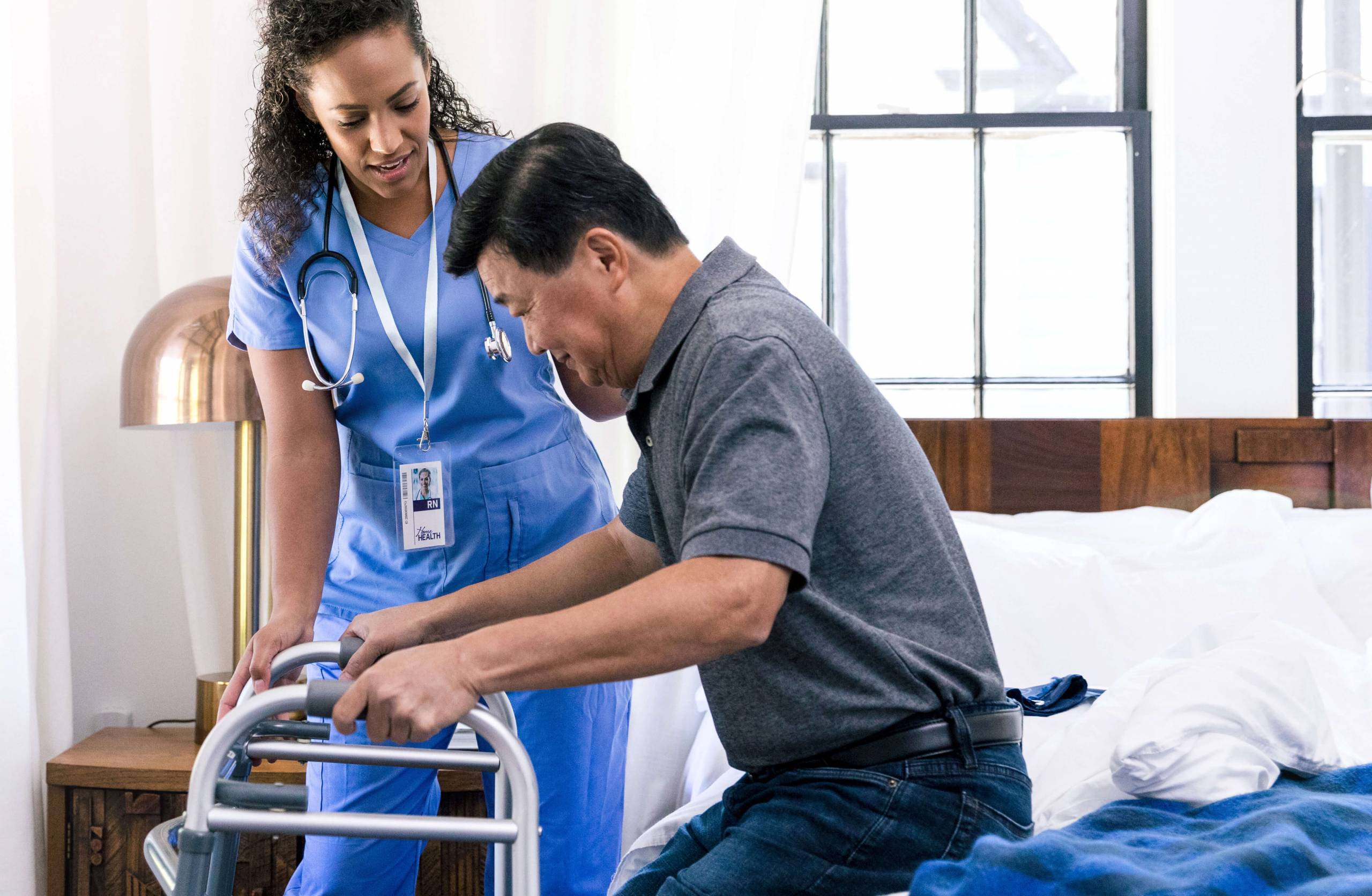Helping Your Senior Avoid Falls

According to the CDC, falling is the leading cause of injury and injury death each year for adults 65 and over. The older someone gets, the greater their likelihood of a fall.
A simple fall can be the start of more serious problems. It can mean the end of independent living. So the goal of every senior should be to do whatever it takes to not fall.
And yet, seniors are often resistant. And no wonder: Some of the protections against falls affect the way their homes look and feel, and their picture of who they are.
It’s hard to age, and we all should be sensitive to that. In fact, advocating for safety measures may not be appreciated. Your family member may get angry at first. But here are some actions that should be considered to decrease their risk of falling.
Encourage your family member to exercise
Tell them to go on the offensive: Physical activity makes muscles stronger and helps improve flexibility and balance. Those three things decrease the risk of falls. The CDC says everyone should exercise at least 150 hours a week, including seniors. Take your senior on walks; encourage them to go to tai chi, yoga, or water aerobics.
Gently help your family member adjust his/her attitude about a few things
Studies show that women fall more often than men. To avoid being a statistic, your female family member may need to put away her flip flops and party shoes and learn to love sensible, non-skid styles. Also, as they age, both men and women can be resistant when their doctors or families say it’s time to use a cane or walker. Many families get embroiled in months of tense conversations about that. And – a most delicate issue – encourage moderation in drinking alcohol: People who imbibe too much are called “tipsy” for a reason, and as our bones age, we can’t afford to tip and topple anymore.
Help make the house safer
Is there clutter on the floor you can help sort through, or at least move out of the traffic pattern? Are there loose rugs that need to be tacked down or replaced? Does your family member need lights for dark halls and corners, and nightlights for the bedroom or bathroom? What would make their tub and shower safer? A non-skid mat? A grab bar? Both?
Check in with your family member about what’s going on with their body
Prescription or over-the-counter medications can trigger falls if the meds make them dizzy or sleepy. So can vision issues. If any of those symptoms occur, let a doctor know.
Perhaps your family member needs to be reminded to slow down
Some people tend to get light-headed if they stand up too fast. If so, encourage them to pause a minute and stand up more slowly. Also, be sure to remind them to tread cautiously if they have foot pain or a chronic condition that affects their balance or gait.
Some aging family members should be taking additional medical steps
All women should ask their physician about being screened and treated for osteoporosis; so too should men with a history of fractures, or men who took steroids for a period of time. This won’t help with fall prevention, but good bone health does impact the risk of fracture when there is a fall. And this brings up a related issue: the need to get enough calcium and Vitamin D every day. Everyone should follow nutritional guidelines for good bone health, but women especially should because they are particularly vulnerable.
